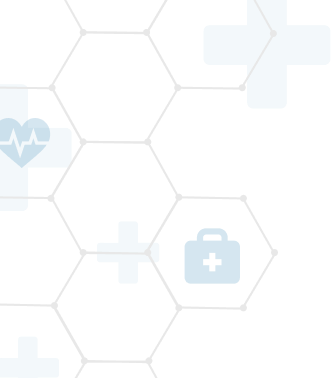
ADDICTION MEDICINE (Adults Only) - COVERED BY OHIP
-
Using substances like alcohol, cannabis, nicotine, prescription medicines and other legal or illegal drugs can, over time, lead to mental or physical dependence. In some cases, this evolves into a condition known as a substance use disorder, where changes in the brain and behaviour make it difficult to control the urge to use these substances, even when they cause harm.
-
Such disorders involve a pattern of use that undermines health and overall quality of life. Individuals may continue using substances despite deteriorating physical and mental health, poor performance at work or school, strained relationships and noticeable shifts in mood and behaviour. Cravings, tolerance and withdrawal often make quitting particularly challenging.
-
The good news is that recovery is achievable. Treatments—such as medication, counselling and support from healthcare providers, family, friends and peer groups—can help people regain control. These disorders exist on a spectrum of severity, and no matter where someone is on that continuum, support and improvement are possible.
Help for Problematic Substance Use
Opioids
Opioids are substances that bind to receptors in the body to reduce pain. This group includes prescription medications like morphine, oxycodone, and hydromorphone, as well as illicit and synthetic opioids such as heroin and fentanyl. While effective for pain relief, opioids are highly addictive and can lead to overdose and death.
Treatment: We offer opioid agonist therapy using medications such as buprenorphine/naloxone, methadone, and slow-release oral morphine. These treatments help reduce cravings and withdrawal symptoms.
Please note: We do not treat chronic pain with opioid agonist therapy.
Benzodiazepines
Benzodiazepines are sedative medications prescribed for conditions like anxiety, insomnia, and seizures. Common examples include lorazepam, alprazolam, and diazepam. These medications carry a high risk of dependence and withdrawal symptoms.Treatment: We do not prescribe benzodiazepines, but we do support individuals who wish to taper off them. We work closely with family physicians to provide safe, structured taper plans.
Stimulants Stimulants include both prescription and illicit substances such as amphetamines, cocaine, and methamphetamine. While they can increase alertness and energy, they also carry a high risk of misuse, dependency, and mental health complications.Treatment: We do not treat stimulant addiction directly and do not prescribe stimulant medications. However, we provide supportive care and non-stimulant options to manage related symptoms and reduce harm.
Alcohol
Alcohol is a depressant that can impair judgment, damage organs, and lead to dependence. Long-term use increases the risk of serious medical and social consequences.
Treatment: We offer non-benzodiazepine, evidence-based medications such as naltrexone, acamprosate, disulfiram, and gabapentin to help reduce or stop alcohol use.
Please note: We do not treat acute alcohol withdrawal, and we do not use benzodiazepines in our treatment approach.
Cannabis
Cannabis is often perceived as low risk, but frequent or heavy use can lead to cannabis use disorder, which may impact mood, memory, and daily functioning.
Treatment: We offer medication-based treatment to support individuals in managing or reducing cannabis use. Non-addictive medications may be used to address symptoms like anxiety, irritability, or insomnia, based on patient needs and goals.
Nicotine Nicotine is a highly addictive substance found in tobacco and vaping products. It can lead to long-term cardiovascular, respiratory, and cancer-related health issues.Treatment: We offer nicotine replacement therapies (patches, gum, lozenges) as well as prescription options such as varenicline and bupropion. These are most effective when paired with behavioral support.
RESOURCES
OPIOID AGONIST THERAPY
SUBOXONE (BUPRENORPHINE) RESOURCES
COUNSELLING RESOURCES
Peel Addiction Assessment & Referral Centre (PAARC) – Supportive individua & group counselling Website: https://paarc.com/ reviews.birdeye.com+6
Narcotics Anonymous Website: https://www.orscna.org/meetings
CMHA Peel Dufferin – Brief Services – Substance Use Program Website: https://cmhapeeldufferin.ca/programs/substance-use/ theregional.com+15cmhapeeldufferin.ca+15centralwesthealthline.ca+15
Reliable information & education resources
Peel Public Health – Alcohol, tobacco & other substances hub
Website: https://peelregion.ca/health/alcohol-tobacco-other-substances/ paarc.com+15peelregion.ca+15stephendasko.com+15
ConnexOntario – 24/7 helpline & service navigator for addictions
Website: https://connexontario.ca/ ementalhealth.ca+15connexontario.ca+15connexontario.ca+15
Centre for Addiction & Mental Health (CAMH) – Addiction information library
Website: https://www.camh.ca/en/health-info/mental-illness-and-addiction-index aysp.ca+15camh.ca+15camh.ca+15

